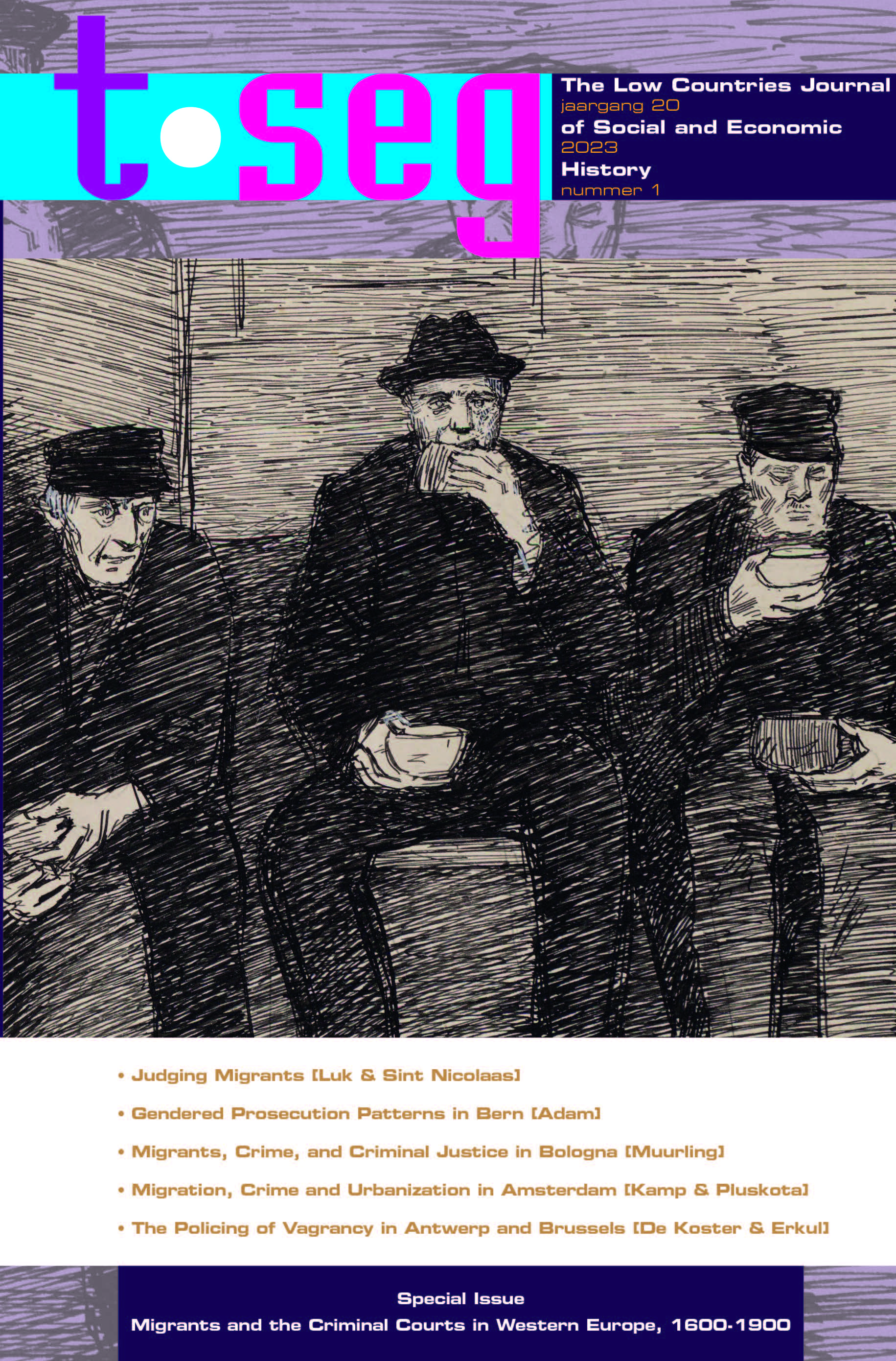Removing Local Nuisances, Arresting Masterless Strangers, and Granting ‘Nights on Request’
The Policing of Vagrancy in Late-Nineteenth-Century Antwerp and Brussels
DOI:
https://doi.org/10.52024/tseg.13642Abstract
This article proposes a comparative study of everyday police controls of vagrants in two Belgian cities – a port city and a capital city – at the end of the nineteenth century, a period that was characterized by heightened mobility and social fear about the so-called ‘masterless poor’. The first section of the article looks at the annual arrest and prosecution rates for vagrancy in Antwerp and Brussels between 1880 and 1910, as well as at the daily instructions from the city authorities and police chiefs to their policemen on how to deal with vagrants and unwanted newcomers. Next, drawing on a selection of archival records of the central police divisions of Antwerp and Brussels from the 1880s, we examine if and how police controls focused on mobile groups when they dealt with vagrancy, and whether they answered the preoccupations of local authorities. In line with the findings of other scholars, we demonstrate that the notion of vagrancy was so elastic that, in both cities, many different groups were arrested and prosecuted for this offence. Next to foreign and internal migrants, the Antwerp and Brussels police also apprehended local people, born in the city or in the surrounding province, who were not necessarily mobile and often known to them. To explain this, we argue that, in practice, the policing of vagrancy was not only shaped by top-down repression, but also by bottom-up uses of the police by vulnerable individuals in need of shelter.
Downloads
Published
Issue
Section
License
Copyright (c) 2023 Margo De Koster, Ayfer Erkul

This work is licensed under a Creative Commons Attribution 4.0 International License.






